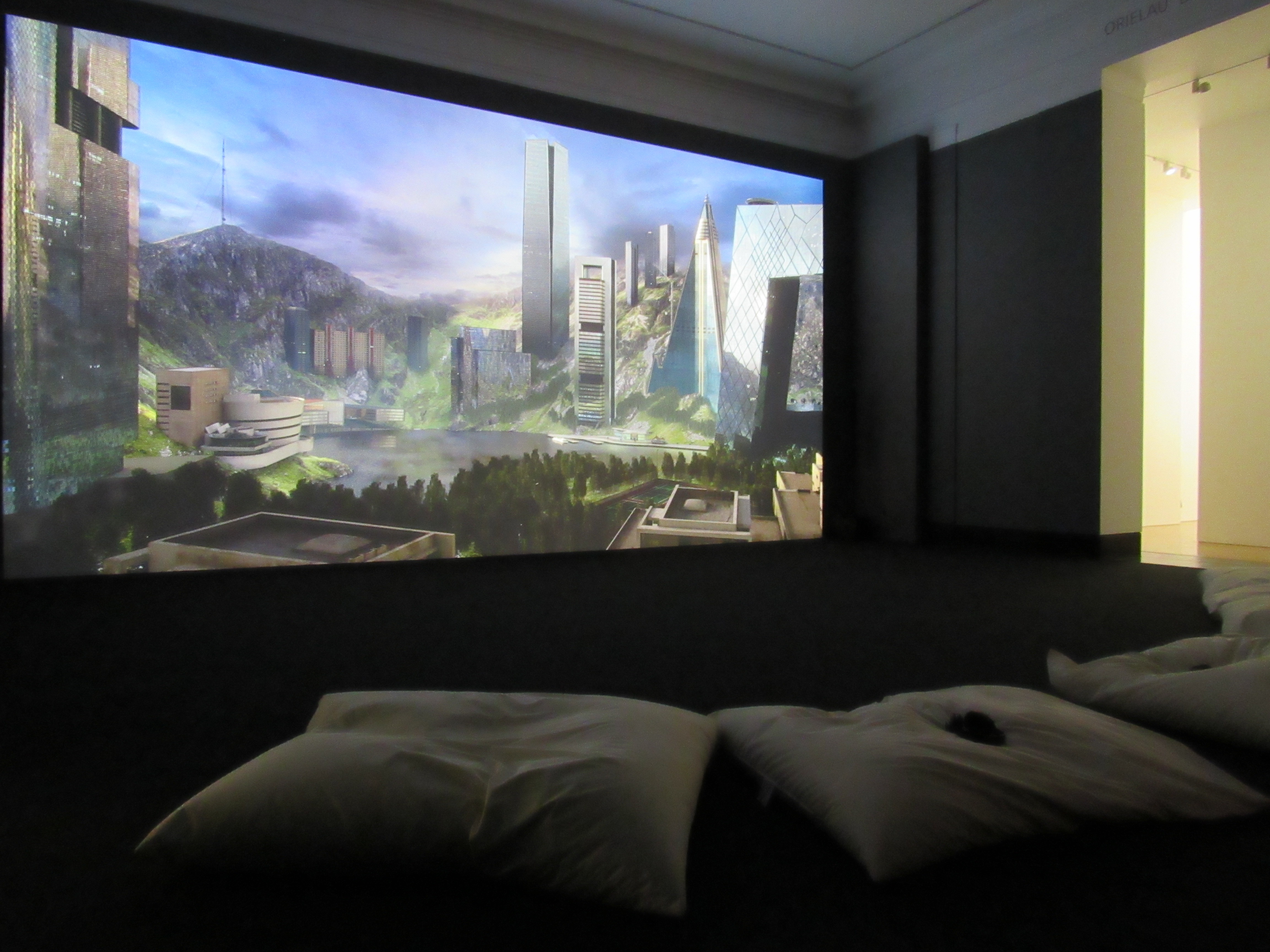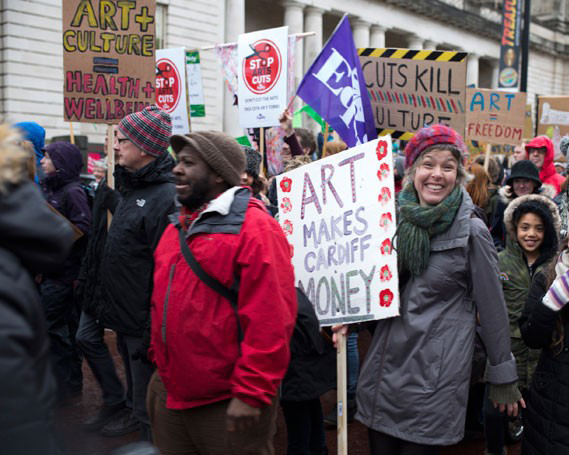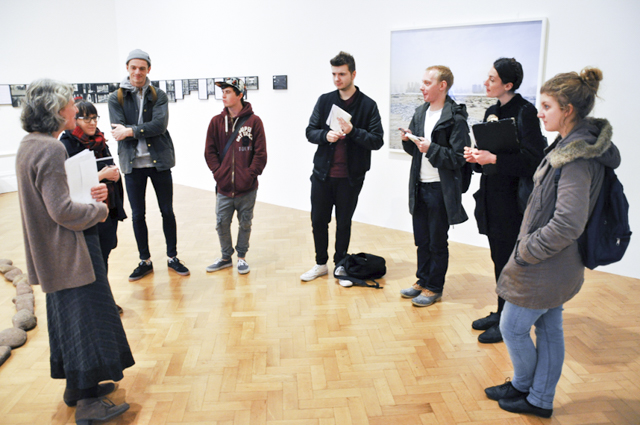While cuts are made across the UK, Wales is determined to see arts education flourish within its borders
Just 839 students sat an AQA A Level exam in Art History this summer. They will be among the last to do so.
The exam board announced their decision to scrap Art History in October, citing the “complex and specialist” nature of the topic as the reason for its end.
What a difference a few weeks make. After two months of anger, when passionate and well versed criticism smothered news sites and a petition to save the subject gained upwards of 8,000 signatures, the A Level is back.
On 1 December, school’s standards minister, Nick Gibb, confirmed that a new A Level in Art History would be launched by the Pearson exam board in September 2017. Nick appealed to previously hostile voices, saying, “Our intention has always been that there should continue to be A Levels available in this subject.”
Cultural education has value. This decisive U-turn is proof of that and it is something which has been shown time and again.
Earlier this year, protesters showed support for creativity in a spectacular fashion as hundreds paraded through the Welsh capital united against cuts to culture.
Carrying hand painted signs that read, ‘Culture = Curiosity’ and ‘Arts and culture = Health and well being,’ these champions of the arts had a clear message and made it heard. The proposed budget changes which inspired the march have since been rejected. Now, Welsh Government is investing more than ever in arts education.
“All schools should be art schools”
Inclusivity is central to arts education in Wales. Pushing creativity to the fore, the ethos here is similar to that of artist Patrick Brill, working under the pseudonym Bob and Roberta Smith, who has affirmed in no uncertain terms that, “All schools should be art schools.”
“We want to see all children have access to the arts regardless of where they live and go to school.”
Huw Lewis, minister for education and skills, supports this and has made clear that personal circumstance should in no way limit students access to cultural experiences.
Showing students that art can be much more than cutting and sticking, the ‘Creative Learning Through the Arts‘ scheme was launched little over a year ago.
This programme encourages young people to engage with artwork and artists in the real world under the umbrella of the ‘All-Wales Arts and Education Programme.’ As the name suggests, this scheme is characteristically broad but it has already begun to renew understandings of art education in Wales.
Creativity and experience are now key to learning. Through making practical provisions for pupils to engage with artists face to face, Welsh students are shown precisely where art can take them.
On simple school trips, which may receive up to 90% funding, students can see the work of skilled artists and therefore find the inspiration to become skilled artists.
 ‘Dancer Looking at the Sole of her Right Foot’ by internationally acclaimed artist Edgar Degas on display at National Museum Cardiff
‘Dancer Looking at the Sole of her Right Foot’ by internationally acclaimed artist Edgar Degas on display at National Museum CardiffSpace for socialising
Internationally renowned for its sizeable permanent collection and high profile temporary exhibitions, including the Artes Mundi prize, National Museum Cardiff, is Wales’ largest provider of learning outside the classroom.
For anyone educated in the capital city, visits to this cultural giant were undoubtedly a feature of school life. The museum runs several programmes to support young people studying art and design and has now become involved in the ‘Go and See’ strand of the ‘All-Wales Arts and Education Programme’.
“Visiting galleries is often the only way young people can experience lots of contemporary art”
Providing funds for travel to museums, galleries and special exhibitions, ‘Go and See’ is the simplest aspect of this programme yet it is having a positive effect on individuals.
Seeing art in person brings it to life. Eleri Evans, learning manager at National Museum Cardiff explains that, “Visiting galleries is often the only way young people can experience lots of contemporary art.”
This experience is valuable and it is overwhelmingly social. In many cases the conversation which evolves around the art on show is as crucial to creativity as looking at the work itself.
The process of talking about art, even if simply saying ‘I don’t get it’, pushes students to communicate and think critically. These are desirable skills and they are only the beginning.
The value of creativity
The strength of creative industries in the UK show that there is power in cultural development. Minister for culture, Ed Vaizy, recently called such industries, including visual arts, music and film, “One of the UK’s greatest success stories.”
Across the UK these industries are now worth a staggering £84 billion per year and in Wales the creative economy employs 84,000 people. Wales’ new approach to arts education will only enhance this figure over the coming years.
 Work by Welsh artist, Bedwyr Williams, on display at National Museum Cardiff as part of the Artes Mundi exhibition
Work by Welsh artist, Bedwyr Williams, on display at National Museum Cardiff as part of the Artes Mundi exhibitionArtist Patrick Brill recently asked, “What must we do now to reinvigorate art education at all levels and once more get kids excited about inventing the future?”
In Cardiff it would seem that the answer has been found. Huge investments are being made, both in monetary value and time spent, and arts education is becoming far more immersive.
The History of Art A Level may have had an uncertain few weeks but arts education in Wales is holding firm. Focus has returned to creativity and there is no doubt that the young people seeing these changes will lead Wales to a more creative future.
. . .
If you have enjoyed this piece, you may also be interested in reading more about Art history and the future of the arts, Art in Cardiff, Harry Holland’s exhibition of iPad drawings or the representation of contemporary art in the city.


